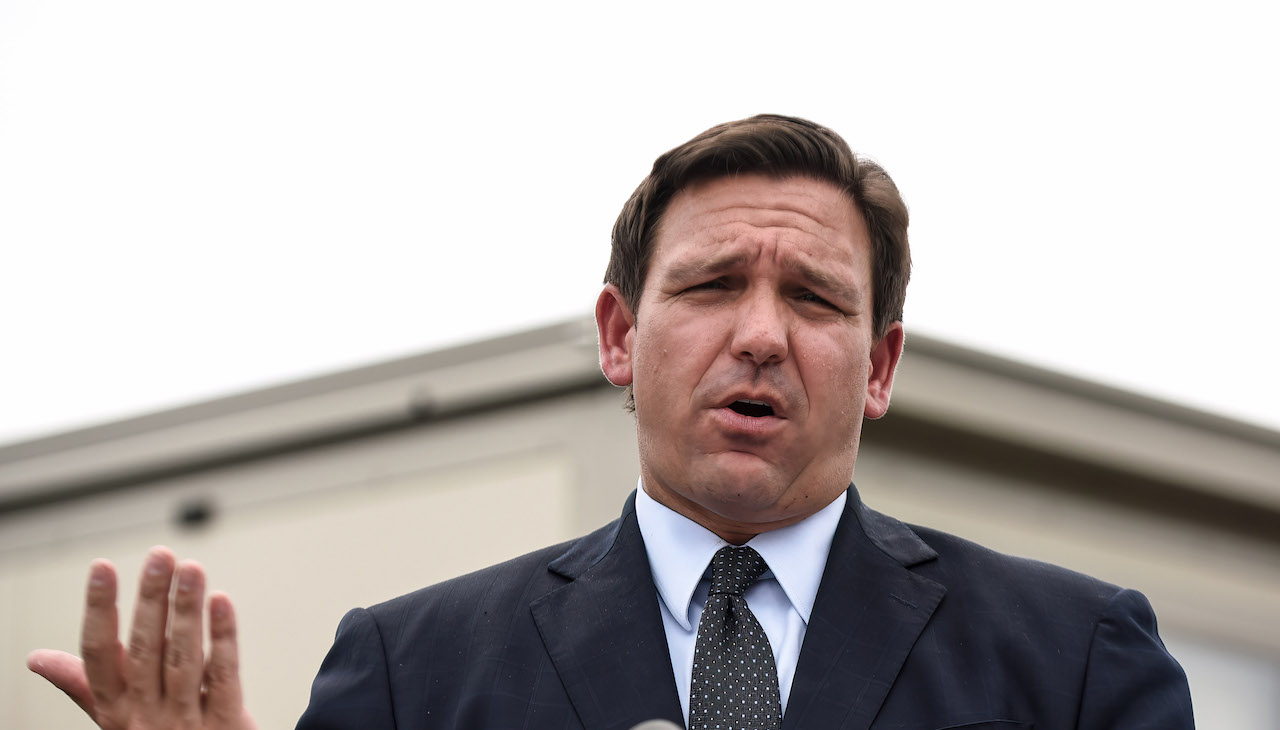
‘Don’t Say Gay’ bill to become law in Florida
The bill bans discussions of sexual orientation and gender identity in school classrooms across the state.
On Thursday, Feb. 24, Florida’s House of Representatives passed a bill that would ban “classroom discussion about sexual orientation or gender identity” within the state’s primary schools.
The legislation is officially entitled the Parental Rights in Education Bill but is referred to by critics as the “Don’t Say Gay” bill. The bill now heads to the desk of Republican Gov. Ron DeSantis, who has previously expressed his support for the legislation and is expected to sign it into law.
On Thursday (February 24), #Florida’s House of Representatives passed a bill banning discussions of LGBTQ topics in schools. The "Don't Say Gay" legislation, which passed by a vote of 69-47, will now head to the Florida Senate, where a similar bill is already being discussed. pic.twitter.com/bLDZeFQTam
— Logo 🏳️🌈 (@LogoTV) February 24, 2022
Last week’s 69-47 vote arrives after weeks of public outcry over the measure, which has captured the attention of international newspapers, Hollywood actors, and the White House.
“Horrified by what is happening in Florida. Children deserve to be who they want to be. To be their true selves. If there was ever a time to register to vote, it is now,” wrote actress Kerry Washington on Twitter.
Speaking to lawmakers on the House floor, Rep. Joe Harding, the Republican who introduced the bill, said the measure is about “empowering parents” and improving the quality of life for children in Florida.
"It’s actually providing boundaries, and it’s fair to our teachers and our school districts to know what we expect,” Harding said.
He has said on multiple occasions that the bill would not restrict students from talking about their LGBTQ family members or ban any classroom discussions about LGBTQ history, such as the 2016 attack on the Pulse nightclub, a gay club in Orlando.
But critics maintain that the broad language of the bill could lead to lawsuits from parents who see any conversation about LGBTQ people or issues as inappropriate.
In a passionate speech on the House floor on Thursday, Feb. 24, gay Democratic Rep. Carlos Guillermo Smith, told legislators that he intentionally wore a Pride rainbow ribbon upside down to signal that the LGBTQ community in Florida is “in distress.”
‘This bill goes way beyond the text on its page. It sends a terrible message to our youth that there is something so wrong, so inappropriate, so dangerous about this topic that we have to censor it from classroom instruction,” Smith said.
Other opponents argued that the bill could harm LGBTQ youth, citing the population’s already troubling mental health statistics.
RELATED CONTENT
A national survey by the Trevor Project, an LGBTQ youth suicide prevention group, found that 42% of LGBTQ youths seriously considering taking their own lives last year.
"past studies have found higher rates of eating disorders and suicide risk among LGBTQ individuals to be related to experiences of bullying and discrimination, as well as internalized stigma based on their LGBTQ identity" #NEDAwarenesshttps://t.co/BnKi5YEeej
— The Trevor Project (@TrevorProject) February 27, 2022
The survey also found that when LGBTQ youth have access to gender-affirming services, spaces and healthcare, their likelihood of attempting suicide decreases.
“When lawmakers treat LGBTQ topics as taboo and brand our community as unfit for the classroom, it only adds to the existing stigma and discrimination, which puts LGBTQ young people at greater risk for bullying, depression and suicide,” said Amit Paley, CEO and Executive Director of Trevor Project.
Democrats also pointed out that the bill’s text makes it unclear what age groups it could apply to. The bill says discussions about “sexual orientation or gender identity may not occur in kindergarten through grade 3 or in a manner that is not age appropriate or developmentally appropriate for students in accordance with state standards.”
Rep. Michael Greico told his fellow legislators that anyone who claims the bill is only targeted towards students from kindergarten to third grade is “either mistaken or flat-out lying.”
In addition to the “Don’t Say Gay” bill, 15 other bills are being considered in eight states that seek to limit speech about LGBTQ identities in classrooms.
"There are 15 similar bills moving through state legislatures that restrict how textbooks and curriculums teach LGBTQ+ topics, who can be hired and what teachers are allowed to say when it comes to gender identity and sexual orientation."https://t.co/IRHLRccn5G
— The Trevor Project (@TrevorProject) February 26, 2022
Three states passed similar bills last year that allow parents to opt students out of any coursework that mentions sexual orientation or gender identity.
And in less than two months this year, conservative state legislators have filed more than 10 anti-LGBTQ bills, already surpassing last year’s record-breaking total.
“I want to make sure that for those LGBTQ youth in Florida and around the country and in the world who are watching, I want to make sure that they know this: You are loved. You are supported. And we will wake up every single day to fight for you, because you are worth fighting for," Smith said.











LEAVE A COMMENT: